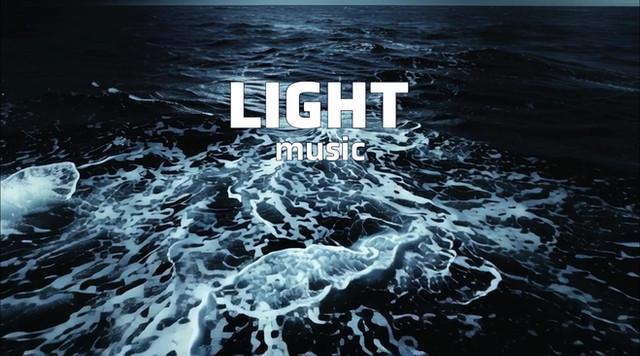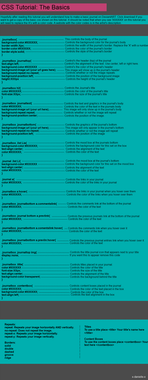HOME | DD
 jocarra — Introduction to Piano IIb
jocarra — Introduction to Piano IIb

Published: 2011-11-07 05:20:44 +0000 UTC; Views: 2439; Favourites: 45; Downloads: 22
Redirect to original
Description
Introduction to PianoThis tutorial is designed for beginners interested in learning to play piano and/or read music. It is not designed to replace the knowledge and instruction one would receive from a piano teacher.
Part I covers what you should look for in a keyboard for those without a piano, how to navigate, name, and memorize the keys of a piano, what the pedals of a piano do, and provides some basic finger exercises and posture recommendations.
Part II covers the basics of reading music, including both treble and bass clefs, note values, accidentals, key signatures, and time signatures.
Part I --> [link]
Part IIa --> [link]
Part IIb --> [link]
* * *
I have several years' formal classical training in piano and musical theory under the Royal Conservatory of Music, although I have not completed my ARCT (I had to focus on getting my B.Sc. instead). However, I'm interested in teaching music at beginning and intermediate levels, and have a little teaching experience.
Please let me know if you spot any errors or points needing clarification, or if you have any additional questions




 Feedback is appreciated!
Feedback is appreciated!
Related content
Comments: 37

Hey there. If it's possible for you could you please enable the downloading option for this like others? It's so difficult to read.
👍: 0 ⏩: 1

Ah, sorry about that, didn't notice! Should be fixed now
👍: 0 ⏩: 1

Much appreciated. Also, thank you for your effort on these
👍: 0 ⏩: 1

my gawsh you just saved my life. our music classes are going sooo fast that I'm not able to keep everything. thank you so much for this!
👍: 0 ⏩: 1

Oh, great, I'm glad 
👍: 0 ⏩: 0

The reading of musical notation is so completely bonkers because it was not so much standardized as it was smashing multiple culture's musical basics together and not bothering to define them >.< Not even the classical artists used a type of notation that could be interpreted correctly without some modern translation. I imagine there is a sort of "metric" notation method that we have yet to bother inventing because we're all reading "imperial".
👍: 0 ⏩: 0

Aaah, so I's called semitone in english XD
again, don't have notes like C# an own name? or only C sharp or major?
👍: 0 ⏩: 1

No, they don't have their own name :b Would maybe make more sense if they did.
👍: 0 ⏩: 2

Though it wouldn't make theoretical harmonic sense... Also for string players, an F# is sharper than a Gb... Wait a sec... I thought you WERE a violinist or a 'cellist, I think we chatted on someones stream.
👍: 0 ⏩: 1

"Though it wouldn't make theoretical harmonic sense"
Yeah... I tried explaining to my boyfriend (a philosophy major) why there's a sharp and flat version of every note, resulting in redundant names. He argues that it's philosophically unsound or something, despite my best attempts at struggling to explain why - for instance, in G minor, the role of F sharp as the leading note is VERY different from the role that G flat might have in that key, to which he responded that it shouldn't matter what the name is, because it's the SAME SOUND and should therefore have the same name, and that the note's context or usage shouldn't change what it is.
At best, we sort of agreed to disagree. I agreed the music system isn't perfect and could probably be improved, but most musicians are content to use it as it is (just like English is a screwy language, but we all just make do because trying to revamp it and getting everyone to use the new rules would just be way too much work), and he agreed that he can see the potential usefulness of something being sharp versus flat telling a musician something more about the piece.
No, I wish I knew how to play violin or cello (although I suspect cello would be too big for me) - must have been someone else!
👍: 0 ⏩: 2

I always thought it had to do with keeping chords looking nice on paper. As in, when you write a Bb major (Bb D F) you have the notes on line, line, line. But if you write it as A# major (A# D F) you have the notes on space, line, line. It's been a while since I studied chords, but I think I recall this makes sense for the more common time signatures...it might break down for some of the weirder chords, though. Eh...chords were never my strong suit. I just play trumpet and am used to dealing with one note at a time haha.
The one that always drove me crazy was different instruments being in different keys. Instead of a Bb on a flute being a C on a trumpet and an F on a french horn, why not just call that fingering position Bb on all the instruments?
👍: 0 ⏩: 1

It's not just to make chords "look nice" but it sort of is, at the same time. It's because a chord is based around the scale/key it's in, right? So a regular triad is usually the first note, the third note, and the fifth note, so it's represented on the staff as note (blank) note (blank) note (blank). It would seem misleading or fallacious to represent this, say, note note (blank) note, because it would seem to suggest the chord is the 1-2-4, rather than 1-3-5.
But the reason it works like that is because people decided to make scales each have their own line/space on the staff, keeping each scale degree distinct from each other visually and in name, representing how each degree (note) of a scale is important in different ways, and can have different harmonic functions. So in a way, it does boil down to them wanting scales to look nice on the staff.
Haha, yeah, good ol' brass and woodwinds. Although, I forget the term for them, but isn't it possible to play two notes at once in brass at certain frequencies?
Yeeeaaaah, transposing between instruments is so annoying! I'm not actually sure why they do it, but I think the intent is to be more convenient for how the instrument plays and its range. I always played a concert C instrument (flute) so I never really had to deal with that. So like, if I wanted to record myself playing flute, and then play a piano accompaniment to it based on the flute music, I could do it. But I couldn't do it with trumpet - I'd have to transpose it into the right key first :b x_X
👍: 0 ⏩: 1

Hmm...there might be a way to play two notes at once, though I'm not familiar with a legitimate way to do it. I have heard people "buzz" between two notes but it usually means your embouchure is wrong and sounds pretty bad so I don't think that's what you're referring to.
Playing your own accompaniment would be pretty awesome. Granted, I can't play piano anyway so I guess that doesn't matter heh. I learned on a trumpet, but played french horn for a while, so whenever the director mentioned a note or key I had to transpose it to Bb for it to make sense to me then transpose it to F so I could play it. It's such a mess haha.
👍: 0 ⏩: 1

I guess there's always singing/humming at the same time: [link]
👍: 0 ⏩: 1

Wow that is the most awesome tuba playing ever. But yeah, humming and playing simultaneously is definitely doable but I didn't know it was a legit technique haha
👍: 0 ⏩: 1

Yeah, it's a pretty cool performance - a friend of mine showed it to me who plays trombone. He was trying to learn the same technique, I think, at the time.
👍: 0 ⏩: 0

Yeah, the thing is, for a pianist, the argument is more valid than for a violinist, because then it actually IS the same pitch (unless you look at the piece which was written for two pianos, tuned a quartertone apart. Because sound is a wave, there are no fixed frequencies. I can see what he's getting at philosophically, but like I said, when you're referring to stringed instruments, a Gb is actually lower than an F#.
Furthermore, I think giving the 'black notes' their own names all together would be detrimental, because instead of having 7 notes to remember (A B C D E F G) and 4 accidentals which can be applied to any of those notes (# b ## bb), you would have 12 separate names to remember, which would end up putting some people off more than regular sharps and flats would. It reduces the time your brain takes to find a key because you go "G that's there, # - go up" rather than spending more time looking across the keys.
It's kind of hard to explain like this, because I can't think of the mathematical terms to support my argument. x3
And hmm... Maybe it was someone else then, I think it was Myenia (or something like that), if you know of her, great artist, and her husband is a classical singer like me.
👍: 0 ⏩: 1

"instead of having 7 notes to remember (A B C D E F G) and 4 accidentals which can be applied to any of those notes (# b ## bb), you would have 12 separate names to remember, which would end up putting some people off more than regular sharps and flats would."
Yeah. Then again, he also thinks they should have kept the original staff with - what was it? - 12 lines. He thinks having different clefs is stupid, and it should all be one giant staff, which would be hell to read X_X Failing that, he argues that every staff should read the same 
But yeah, I'm with you there. It's not THAT bloody hard to remember sharp means "go up" and flat means "go down" :b But then, I think that's something every music student grumbles about at some point: "It can be F sharp OR G flat? That's dumb!" >:C
👍: 0 ⏩: 1

*facepalm* One giant staff would just be terrible XD Especially if you're trying to play some Liszt, or heaven forbid a piano arrangement of The Ring Cycle! Sight reading would be nigh unto impossible! And I'm sorry, he thinks every staff should read the same? As in clefs? Poor old viola players would be off the staff the whole time, and bassists... well... Nothing really needs to be said!
and yeah, I know I complained about it during theory, but I understand now, and it's actually fairly simple once you understand basic harmony :3
👍: 0 ⏩: 1

And yeah, I meant clefs, sorry. I mean, I personally hate reading the alto and tenor clefs, but yeah, better than reading tons of leger lines all the time x_x
👍: 0 ⏩: 1

Yeah, I can't read very well if it's straight out "play this". I would have to work out what note I'm starting on first, and if there are any intervals larger than a 6th I usually pause and have to work it out again x3
👍: 0 ⏩: 1

Haha, yeah, I hate that x_x I usually just end up writing the letter names of notes on leger lines more than 3 lines from the staff :b
👍: 0 ⏩: 1

It's a great way to get used to it, I can instantly recognise notes 3 ledger lines above the bass clef (because I sing in it), but the treble I can only do about 2 instantly, then it takes me a little longer.... *stops babbling* XD
👍: 0 ⏩: 1

Heh that's awesome. I've never seen a music tutorial on dA. I have a music degree. It's cool to meet fellow musicians on here.
👍: 0 ⏩: 1

Oh, awesome 
👍: 0 ⏩: 1

Music Ed/Music. I didn't do my student teaching, but once I do I can start a career with it. 
👍: 0 ⏩: 1

Heh, well, worked out well for you 
👍: 0 ⏩: 1

Yeah, art is my life now. I honestly have no idea if I'll ever teach. Music programs are being pulled from schools all over, especially in high schools (which is what I want to do).
👍: 0 ⏩: 2

Teach privately, do performances in churches and advertise there :3
What is your primary instrument?
👍: 0 ⏩: 1

I taught private lessons before with my mains; flute and saxophone, with flute being my top, but I can play any woodwind and brass instrument decently.
👍: 0 ⏩: 1

Oh cool, I'm a classical singer, and I also play piano (though not to a high standard). I keep re-teaching myself to play the flute, but then I don't pick it up for months and it's back to the drawing board XD I get to about grade 3 (ABRSM) standard, then stop >.< I would love to get a sax, purely for jazz and blues improvisation, so easy to improvise, yet it sounds so incredible <3
👍: 0 ⏩: 1

Yeah I played bari and alto in jazz band in high school and college. SO much fun. Had a few solos myself.
👍: 0 ⏩: 1

Nice, I played keys in big band (it was meant to be big band, but there weren't really enough people to call it that, and most of them played guitar, it's was horrible x_x) at college :3
👍: 0 ⏩: 0

Ahh, yeah 
👍: 0 ⏩: 0
























